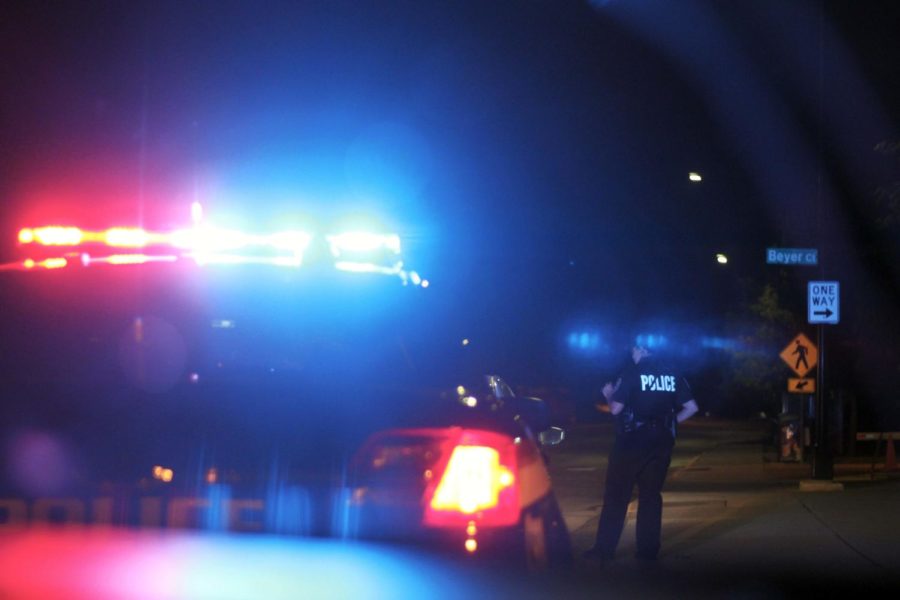- App Content
- App Content / News
- News
- News / Politics And Administration
- News / Politics And Administration / State
Iowa ACLU is investigating court debt In Iowa
November 6, 2017
Guilty or not guilty, imprisonment can result in a number of fees from legal expenses to paying for room and board.
In October, the American Civil Liberties Union of Iowa (ACLU) announced a research project investigating court debt and the criminalization of poverty in Iowa.
A press release from the ACLU explained how the court fees can pile up and affect someone:
“First, whatever the charge, if you are taken into custody—guilty or not—you usually have an opportunity to post bail in a day or two. But if you can’t afford bail, you will remain in jail. Then, if you can’t afford a private attorney, you are assigned a court-appointed attorney, but because of those attorneys’ heavy workloads and weekends off, you might not see your attorney for days.”
The ACLU press release also mentions that each day you spend in jail, regardless of if you plead guilty or innocent or how you are convicted, you still will be accumulating a daily fee for room and board. In Polk County, this fee is $95 per day, regardless of the outcome of the case or charges against you.
Along with the room and board fees of jail, if your employer finds out you are in jail, you can be fired justly.
The 1963 Supreme Court case Gideon v. Wainwright ruled, under the Sixth Amendment, the United States is required to provide legal counsel to defendants who cannot afford an attorney in criminal cases. Despite this, defendants must pay their court appointed attorney.
The state provided attorney is not free and sometimes not even cheap. Most people assume the state will pay for the lawyer, but in Iowa this is not the case.
The ACLU press release said “court-appointed attorneys and public defenders almost never come free of charge and almost never come with a cap on what their clients might owe.”
Meaning the fee could depend on the length of the case or the legal complexity. So even those in need of a state-appointed attorney for financial reasons could soon find themselves in a mountain of debt from their case. Even if they were innocent or the charges are dropped.
The ACLU research project press release pointed out reasons how the state worsens court debt in Iowa.
“In 2015, the State of Iowa decided to partially privatize court fees collection. Now, after 30 days of non-payment, debts are automatically assigned for collection and some are turned over to a private debt collection agency.
These private collectors automatically add a 25 percent collection fee to existing debt. This means that those who are unable to pay upfront end up owing significantly more than those who can.”
Phil Brown, hired by the ACLU to help investigate court debt in Iowa, called this a “poor tax.”
Court debt is similar to student loans because they will both stick with you even if you file for bankruptcy. Escaping court dept can be daunting and often impossible to overcome for those without financial means.
The ACLU press release also mentions that Iowans can be jailed for their inability to payoff court dept. It is estimated that by the end of 2017 more than 1,000 people could be jailed in Iowa for not being able to payoff previous court debt.
The ACLU will also be looking into racial disparities in court debt. The ACLU reported “black people in Iowa are 11 times more likely to be convicted than white people.”
Some of the court fees in Iowa include:
- a filing fee for a civil petition—$185
- appeal of judgment in a small claims case—$185
- Entering a final divorce decree—$50
- Motion to show cause for contempt—$50
- For certification and seal of court document (except for probate)—$20, probate is $10
- For filing and indexing a transcript of judgment—$50
- Fee for jury trial—$100
- Penalty for late settlement of jury trial—$1,000
- Court reporter fee $40 per day
Other fees apply depending on the case. The full list of court costs can be found online at iowacourts.gov.
Mark Stringer, the executive director of the ACLU of Iowa ended the report by saying, “The criminalization of poverty broadly also has serious implications for racial justice in our state. It’s an area that has too long been ignored, and the problems are only getting worse.”







